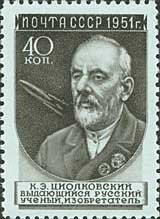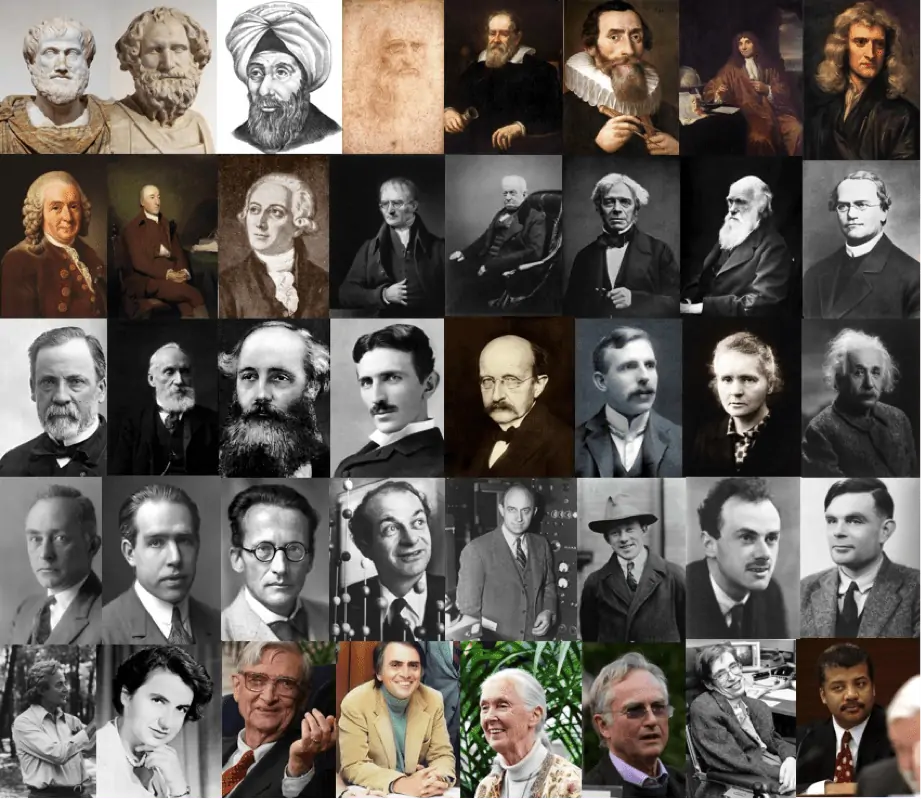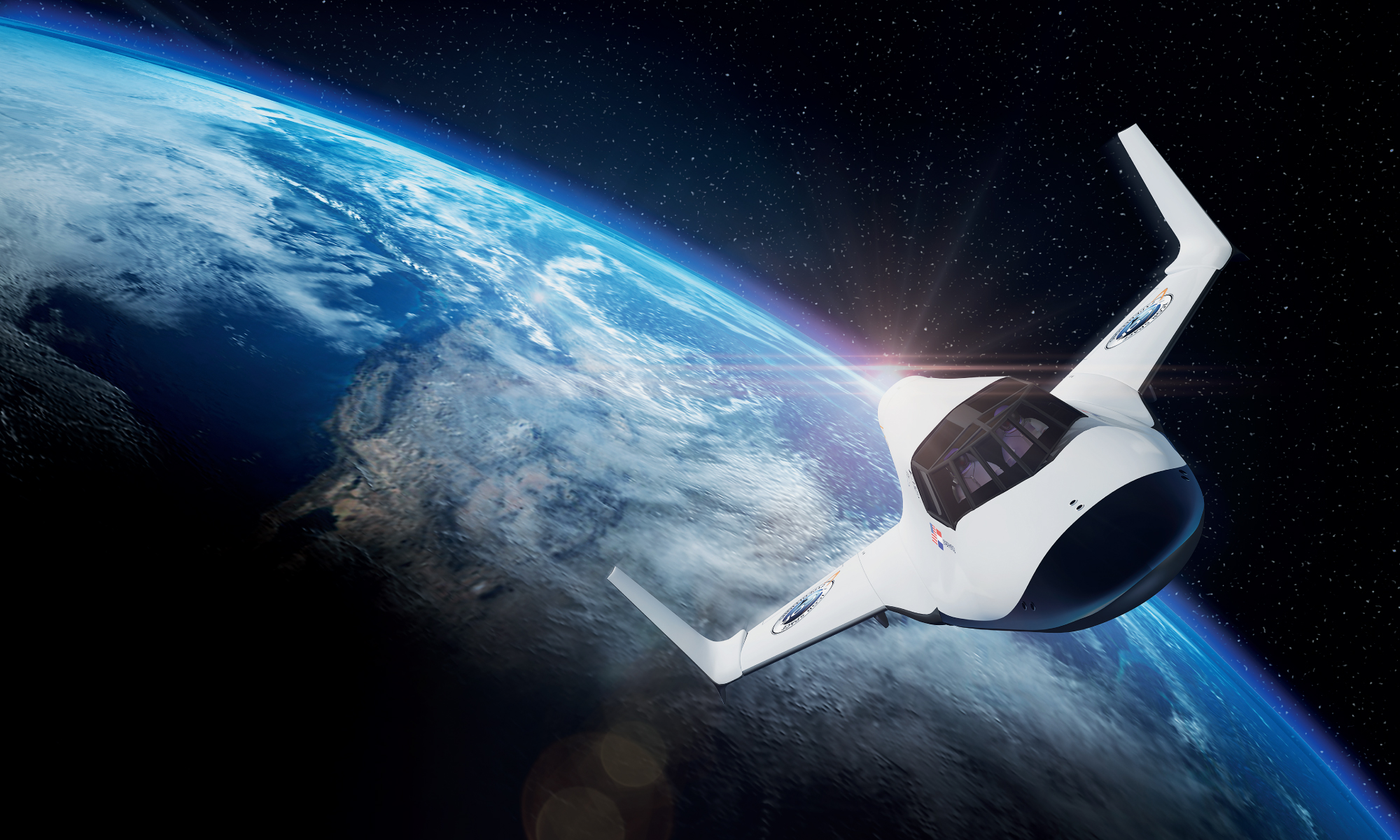Stamp: K.E. Tsiolkovsky (1857-1935), Founder of Astronautics (Soviet Union, USSR 1956)
K.E. Tsiolkovsky (1857-1935), Founder of Astronautics (Soviet Union, USSR 1956)
01 January (Soviet Union, USSR ) within release Famous Russian scientists goes into circulation Stamp K.E. Tsiolkovsky (1857-1935), Founder of Astronautics face value 40 Russian kopek
| Stamp K.E. Tsiolkovsky (1857-1935), Founder of Astronautics in catalogues | |
|---|---|
| Michel: | Mi: SU 1577r |
| Soloviev: | Sol: SU 1639-IP |
Stamp is vertical format.
Issued in sheets of 100 (10 x 10) stamps. Second issue. Halftone, horizontal raster. Image size - 21.5 x 32 mm. Text: Outstanding Russian Scientist, Inventor. Stamp reissued in 1955/56 slightly smaller image dimensions than 1951 issue.Also in the issue Famous Russian scientists:
- Stamp - Alexander M. Butlerov (1828-1886), Russian Chemist face value 40;
- Stamp - Alexander N. Lodygin (1847-1923), Russian Inventor face value 40;
- Stamp - Dmitry I. Mendeleev (1834-1907), Russian Chemist face value 40;
- Stamp - K.E. Tsiolkovsky (1857-1935), Founder of Astronautics face value 40;
- Stamp - Nikolai I. Lobachevsky (1792-1856), Russian Mathematician face value 40;
- Stamp - Pavel N. Yablochkov (1847-1894), Russian Inventor face value 40;
- Stamp - Pyotr K. Kozlov (1863-1935), Explorer of Central Asia face value 40;
- Stamp - Pyotr N. Lebedev (1866-1912), Russian Physicist face value 40;
- Stamp - Stepan P. Krasheninnikov (1711-1755), Russian Geographer face value 40;
Stamp K.E. Tsiolkovsky (1857-1935), Founder of Astronautics it reflects the thematic directions:
Famous People refers to the fame and public attention accorded by the mass media to individuals or groups or, occasionally, animals, but is usually applied to the persons or groups of people (celebrity couples, families, etc.) themselves who receive such a status of fame and attention. Celebrity status is often associated with wealth (commonly referred to as fame and fortune), while fame often provides opportunities to make money.
An invention is a unique or novel device, method, composition, idea, or process. An invention may be an improvement upon a machine, product, or process for increasing efficiency or lowering cost. It may also be an entirely new concept. If an idea is unique enough either as a stand-alone invention or as a significant improvement over the work of others, it can be patented. A patent, if granted, gives the inventor a proprietary interest in the patent over a specific period of time, which can be licensed for financial gain.
Outer space (or simply space) is the expanse that exists beyond Earth's atmosphere and between celestial bodies. It contains ultra-low levels of particle densities, constituting a near-perfect vacuum of predominantly hydrogen and helium plasma, permeated by electromagnetic radiation, cosmic rays, neutrinos, magnetic fields and dust. The baseline temperature of outer space, as set by the background radiation from the Big Bang, is 2.7 kelvins (−270 °C; −455 °F)
A scientist is a person who researches to advance knowledge in an area of the natural sciences




